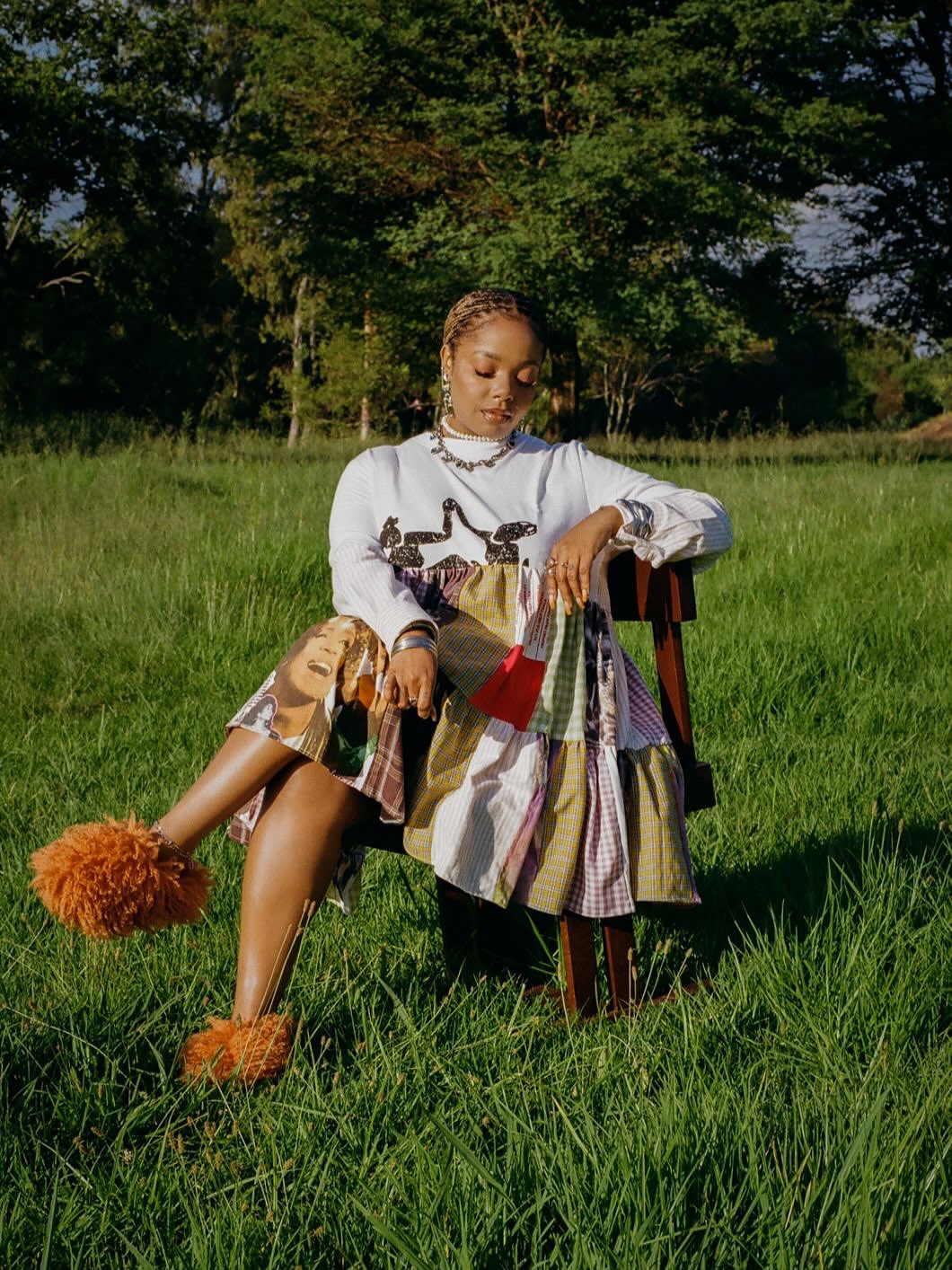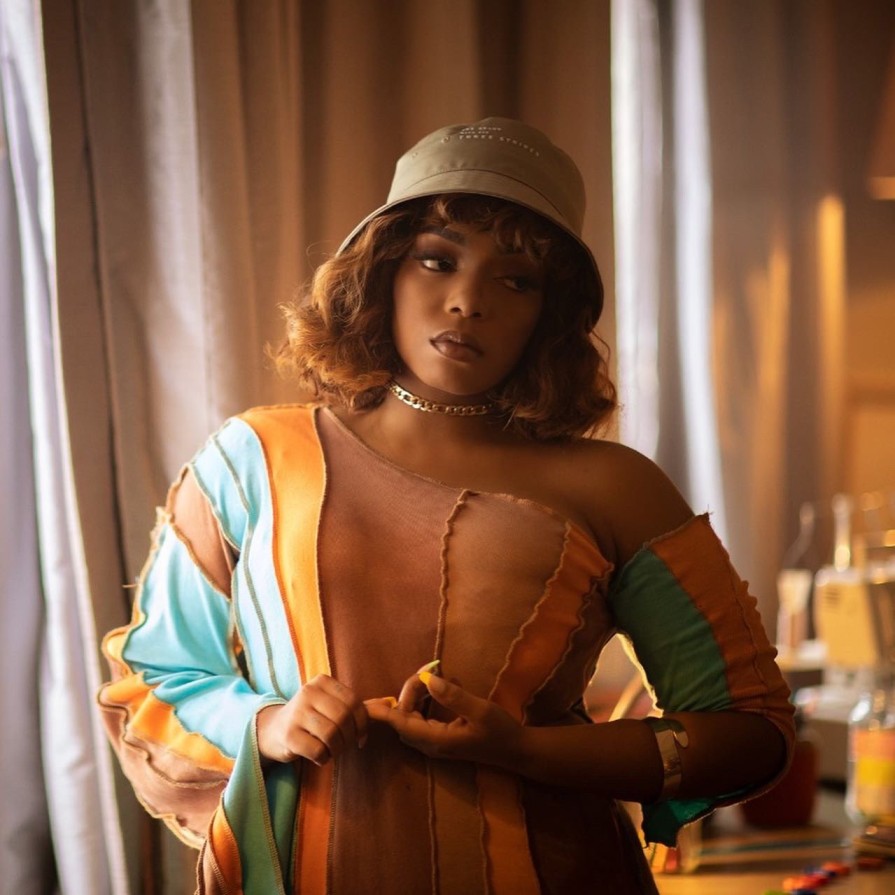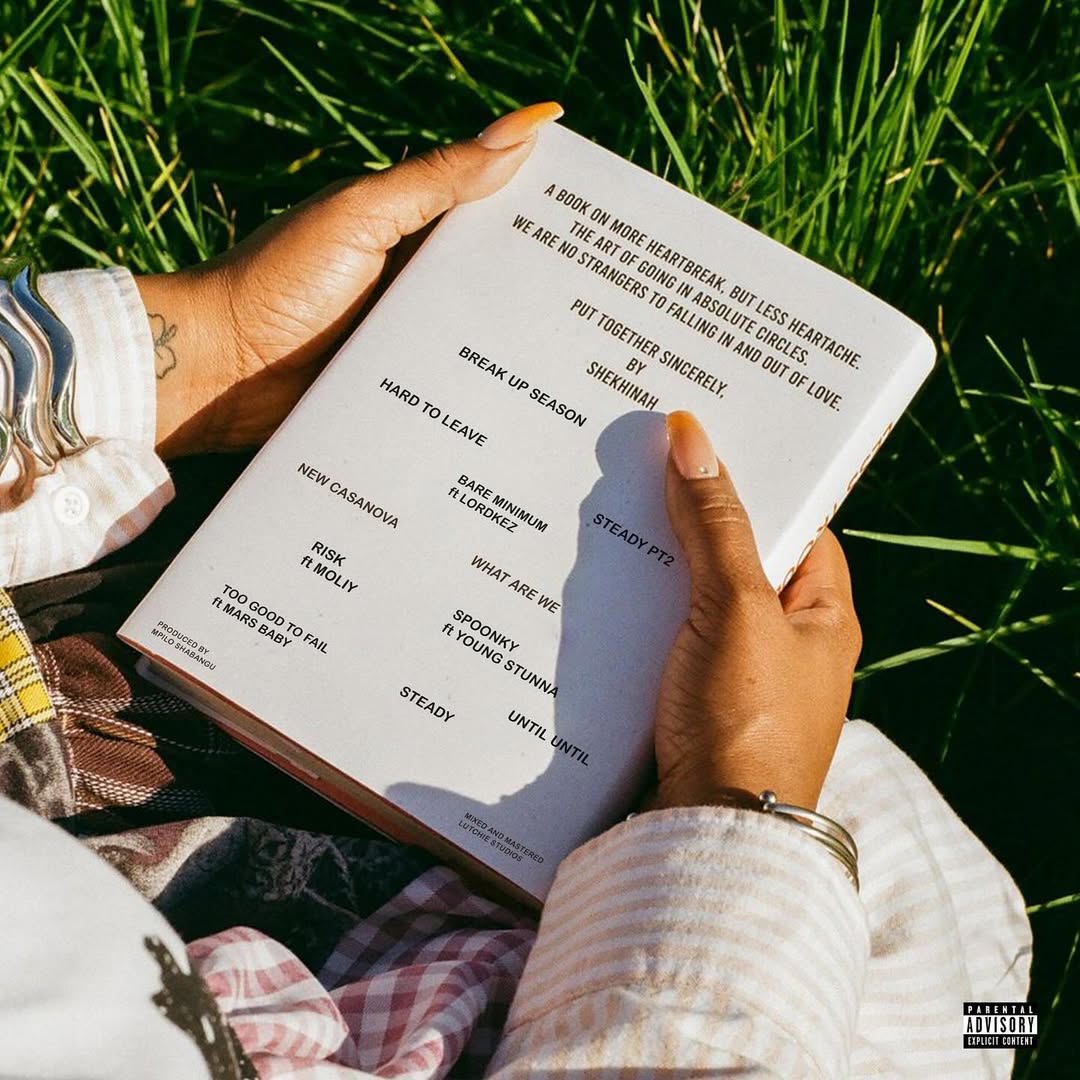Less Trouble is a stellar outing in every regard. It carries Shekhinah’s quiet confidence to stand on her own and let the music speak, and it speaks volumes.
By Yinoluwa Olowofoyeku
Shekhinah Thandi Donnell has spent the past decade shaping South African Pop and R&B in her own image, evolving from a Durban-born Idols SA breakout into a fixture of the country’s mainstream with a sound that blends sleek hooks, diaristic songwriting, and collaborations that transcend genre borders.
Early singles such as “Back to the Beach” with Kyle Deutsch put her on national radio, while a high-profile feature with Black Coffee on “Your Eyes” expanded her reach. Her 2017 debut album, Rose Gold, cemented this ascent with radio-dominating singles and industry accolades, followed by 2021’s Trouble In Paradise, a glossier but emotionally tangled sequel that explored the fallout of love and fame.
Now, she returns with Less Trouble, a surprise independent release presented as the calmer afterglow to that storm. With a tight 11-track runtime and a handful of astute guest features, the project underscores her global-facing pop instincts while keeping the storytelling close to the chest.
Less Trouble opens with “Break Up Season”, introduced by emotive, strummed rhythm guitars that immediately set an R&B mood, with Shekhinah’s softly sung vocals arriving gently alongside sparse live drums. The swinging syncopation of the percussion folds into rich, expressive basslines and swirling guitars, together building a soulful and immersive soundscape.
The track captures the impending collapse of a relationship, with Shekhinah confessing: “Every single time, all we do is fight/ And I’m getting really tired/ I can’t shake this feeling, it’s breakup season… Every single time, we don’t get it right/ And I know we really tried.” Her sweet, soulful delivery is enhanced by clever use of processing effects that make the listener feel submerged in her voice. Though brief, it is a beautiful opener, establishing both the sonic palette and the emotional tone of Less Trouble from the outset.

On “Hard To Leave”, bright piano chords backed by swirling pads create an airy foundation, soon joined by plucked rhythm guitars and thumping summer-pop drums. The instrumental feels breezy and light, yet Shekhinah paints across it with darker hues, reflecting on a toxic romance she cannot quite escape: “Baby it’s hard to leave, this love’s consuming me/ It takes my breath away, and leaves me in a state… This love is hurting me/ It pains my heart to stay, but I can’t walk away.” Her slow, sultry delivery lingers in soft, airy melodies, while carefully chosen moments of harmony expand the track into an enveloping vocal texture that seems to wrap itself around the listener.
“Bare Minimum” strips back even further, its heavily reverbed strummed guitar creating a dreamlike atmosphere that floats beneath distorted and effected vocal layers. It works as a poetic interlude, reflecting on the adjustment of standards. Spritely staccato ad-libs flicker in and out, enhancing the track’s ethereal quality. Though short, its impact is undeniable.
This airy thread carries seamlessly into “New Casanova”, another fleeting interlude that is even shorter in length. Shekhinah flaunts a new romantic entanglement in lines delivered like sung poetry. The result is short, sweet, and punchy; a flash of newfound confidence before Less Trouble continues.
“What Are We” shifts the energy again, propelled by off-kilter hi-hats, four-to-the-floor kick drums, and snappy claps that ride over a bustling bass guitar. Rich, evolving pad chords and sweet rhythm guitar accents colour the stereo field, creating a vibrant foundation for Shekhinah’s inquiry. With smooth, straightforward melodies, she asks plainly: “Now that I met you, how do I get you?” before layering rich harmonies in the chorus: “Baby, what are we? Think that I look good on you/ If we were together, I’d write you letters… And I’m what you’re looking for, yeah.” It is a simple yet heartfelt plea, framed by warmth and clarity.
“Risk” arrives with lively bass and saxophone runs that usher in playful piano chords and percussion-driven Afrobeats drums. Here, Shekhinah is joined by Moliy, whose high-pitched voice entwines delicately with Shekhinah’s softer tones. The duet unfolds like a gentle, airy dance, their call-and-response ad-libs intertwining as both declare their willingness to take a chance on love: “I’ll take the risk, the risk, the risk with you/ If you wish, you wish, if you want to”.
Less Trouble then detours into “Spoonky”, which introduces its title through a brief audio sample: “Spoonky-poonky love, a lover that you can’t resist”. Shakers, rich bass, and warm pad chords slide in, joined by a strummed rhythm guitar line and spacious Afro-fusion drums. Young Stunna opens energetically with a half-sung, half-spoken delivery in Xhosa before handing over to Shekhinah, who sings with smooth restraint. Her melodies and harmonies take flight on the chorus, declaring affection in sweet promises: “You’re the one that I want/ When you call I pick up/ Saved your name as ‘My Love’/ Keep your focus on us”.

“Steady” brings Less Trouble back to a summery beach-pop aesthetic, built on a two-chord progression carried by heavily reverbed guitars. A simple drum arrangement with steady hi-hats and a throbbing bass guitar underpins bright plucked harmonics, giving the track a dreamlike shimmer.
Shekhinah leans on short, simple sung lines with low harmonies, while effected vocals contribute to the airy float. The lyrics celebrate the progress of a relationship: “This time we’re going steady, steady, steady… But look how far we’ve come, and now/ Now we’re doing so amazing.” The track evolves before the close, breaking into a halftime outro that seamlessly leads into the next song.
That next track is “Steady Pt 2”, which continues directly from where its predecessor ends. This time, the mood shifts to a more intimate bedroom R&B ballad. Prominent synth bass and filtered pads provide melody and warmth, while reverbed stadium drums with simple R&B syncopation give the track its thrust.
“Too Good To Fail” reintroduces strummed acoustic guitars, lively bass, and subdued drums, providing a steady backdrop for a duet between Mars Baby and Shekhinah. Mars Baby offers the male perspective in a lower register with funky vocal effects and a laid-back demeanour, while Shekhinah’s airy higher register contrasts with breezy emotional clarity. Their harmonies mesh beautifully as they celebrate the best parts of a thriving relationship, assuring one another: “We’ve been skipping parties/ You’ve been laughing on my body/ If it’s them or us, can’t please everybody/ But it’s too good to fail, feels like a fairytale… I’ll linger here for you/ I’ll wait until forever here for you”.
Less Trouble closes with “Until Until”, where sizzling hi-hats and thumping dance drums merge with soulful electric piano chords and a rumbling analogue synth bass. The rhythm nods to Amapiano, reinforced by pounding log drums, yet Shekhinah stays fully rooted in R&B with sleek, winding melodies and airy harmonies. Her soft, emotive delivery looks towards a long future together: “Until the very end/ On your love, boy, I can depend… We could go every day/ You are more than a phase/ I’ll lay where you lay/ ‘Til we’re old and we’re grey, yeah”. It rounds off Less Trouble with a sense of resolution, revealing that the tracklist has been telling a complete narrative all along.
Less Trouble is a stellar outing in every regard. Released independently, it carries Shekhinah’s quiet confidence to stand on her own and let the music speak, and it speaks volumes. What it reveals is an artist at the very peak of her powers, fully in conversation with her sound, her skills, her strengths, and her voice.
The album is strikingly cohesive. Sonically, it settles into a soulful, summery palette of reverbed guitars, simple yet effective drums, rich basslines, and glimmering pads – a congruent sonic identity that never loses its balance. Thematically, its cohesion first appears as a meditation on love and relationships, charting the ups and downs of romance. Yet a closer listen uncovers a singular narrative arc, traced across the tracklist like chapters in a diary: the looming threat of breakup at the start, the quiet interludes marking the turn toward finding someone new, and the gradual blossoming of that relationship until the final moments of Less Trouble.
That sense of narrative is sharpened by Shekhinah’s first-person, diaristic songwriting, with lyricism that feels lifted straight from an inner monologue or private conversation. The listener is drawn into her orbit, inhabiting the emotional beats as they unfold, feeling every shift and swing because of how direct and communicative her words are.

Her vocal performances embrace subtlety, in line with the conventions of the genre and the intimacy of the themes. Her voice is a summer breeze – light, airy, warm, and inviting – and she uses it with remarkable purpose, privileging clarity and emotional truth over vocal acrobatics. This restraint allows her harmonies to gleam, and ensures that when she does alter her delivery or melody, it lands with striking memorability. Features are folded in with precision, each one bringing contrast in tone or style, giving the duets an additive quality that highlights her own performance even as it complements it.
Perhaps the true star of the show, however, lies in the production and engineering. The sonic cohesion owes much to the production, but what makes it soar is the simplicity and sensitivity to atmosphere. These instrumentals ebb and flow like waves, compositions of sound and feeling that lift Shekhinah’s voice and mirror its emotion. The balance across pop, R&B, and Afrobeats is handled with masterful ease, each influence folded seamlessly into the whole.
The engineering then ties it all together, making the vocals shimmer in the dreamlike haze the music demands. The handling of harmonies, ad-libs, and background layers is worthy of close study, boasting faint call-and-response passes that feel interactive, and ghostly presences that are felt as much as heard, adding subconscious warmth and depth. These choices work in tandem with the production to elevate the vocals into something cinematic, atmospheric, and entirely immersive.
All of this culminates in an album that is sonically enveloping, emotionally involving, narratively cohesive, and at its best, downright transfixing. Shekhinah has outdone herself, crafting what feels like her magnum opus to date. Though she often spaces her projects apart, Less Trouble has undoubtedly heightened the hunger for whatever she chooses to deliver next.
Lyricism – 1.5
Tracklisting – 1.6
Sound Engineering – 1.9
Vocalisation – 1.5
Listening Experience – 1.5
Rating – 8.2/10
Yinoluwa “Yinoluu” Olowofoyeku is a multi-disciplinary artist and creative who finds expression in various media. His music can be found across all platforms and he welcomes interaction on his social media @Yinoluu.




